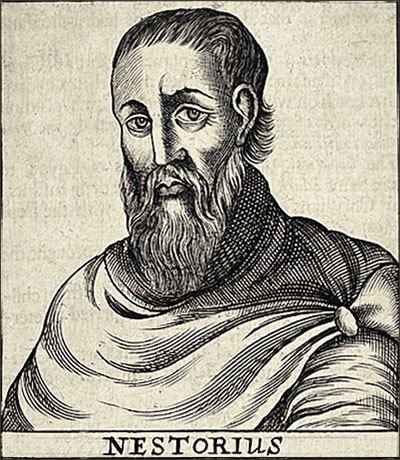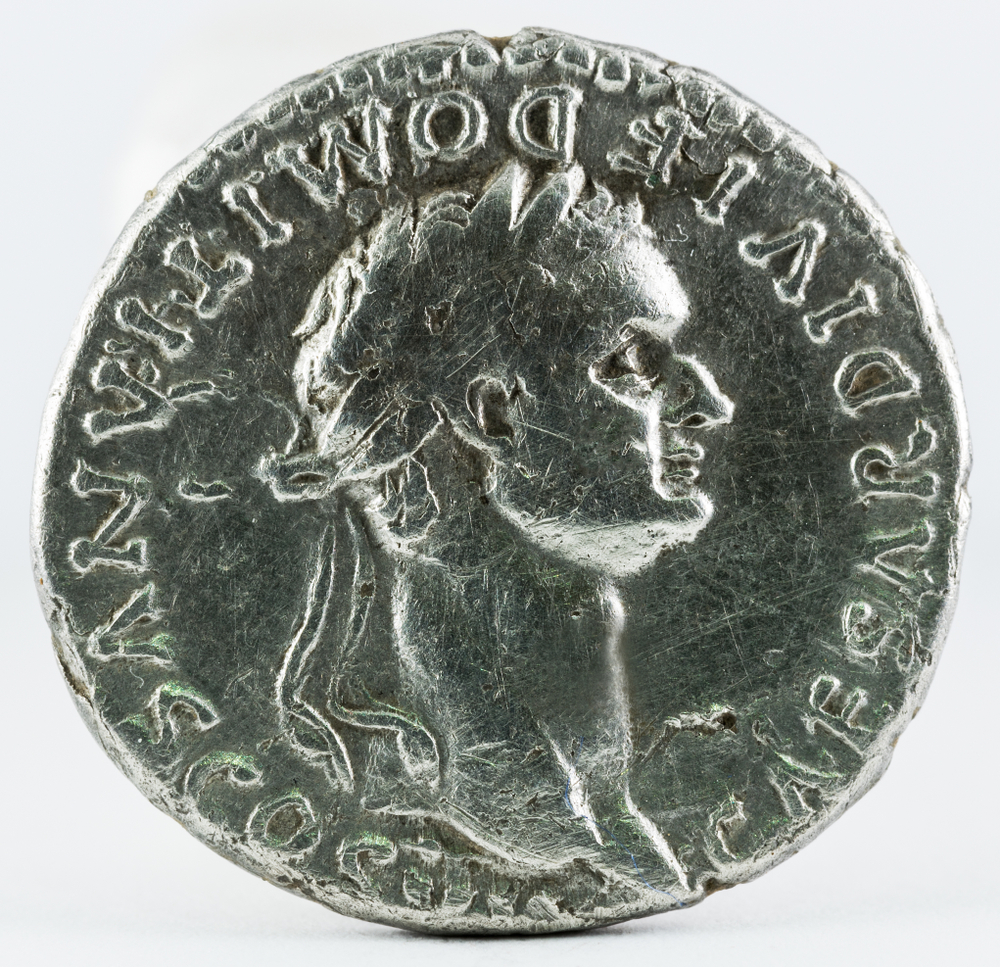Why Almost Everyone Is Wrong About The True Meaning Of Christmas...
The Lost Secrets of Christmas
The True Meaning Of Christmas
Means Understanding The Incarnation
The True Meaning of Christmas Is The Word Made Flesh
The true meaning of Christmas is that the eternal Son of God took to Himself a true human nature and "tabernacled" among us: God the Son became man in the person of Jesus of Nazareth. The nature of the incarnation and the true union has always been a bit of a mellon-scratcher and a very deep mystery. How exactly deity and humanity can come together in personal union is tough to say. We can only confess what Scripture confesses, which it does in many times and in many ways. Just a few:
“The Word was made flesh” (John 1:14). “God sent forth his Son, made of a woman, made under the law” (Gal. 4:4). “God was manifest in the flesh” (1 Tim 3:16). “Jesus Christ is come in the flesh” (2 Jn. 1:7). “For unto you is born this day in the city of David a Savior, which is Christ the Lord” (Luke 2:11).

Finding the true meaning of Christmas has enormous implications.
There are many reasons why Christmas is important and why we need to look deeper for the true meaning of Christmas.
Through the centuries, human reason and the philosophy of Rationalism has pushed hard against this biblical declaration and thereby the true meaning of Christmas. In the name of common sense, rational simplicity, or the rejection the incomprehensible... theologians and churchmen have pooh-poohed the very idea of incarnation. In truth, these theologians have helped to corrupt the real history of Christmas as we know it.
Jesus was a created god, they say. Or, Jesus was more of a vapor and not human. Or, Jesus was a man who became God... after accumulating enough bonus points. The gospel-doctrine of the Incarnation has been the perennial target of those who simply won't have the Christ of Scripture as their Savior.
The Real Meaning Of Christmas Soon Muddied By Gnostics
In the days of the early Church, the Gnostics were among the first to posit and push a counterfeit Christ that effected how the true meaning of Christmas was understood. Yep, this Christ was in some sense God. Deity, after all, had to remain accessible to those who sought it. But the Gnostic Christ wasn’t and couldn’t be, true man. The Gnostics argued that matter and flesh are pretty low on the value chart. Maybe even evil in itself, and therefore absolute deity could never join itself to anything so at odds with the truly spiritual. God might take on human appearance perhaps. Or, more likely to them, a man searching for transcendence might grab hold of the divine and so realize the divinity already inherent in his nature. But God could never take on "fleshly humanity"... God could never claim human flesh as His own. Not as the gnostics see it anyway.
In the early 4th century, the Arians also offered up their revision of Christ. He was God’s Son, but only by adoption. In fact, this Christ was a kind of demigod, the greatest of all creatures and the one through whom the Father made everything else. The Father alone was truly God, the Arians said. But being transcendent in His essence and infinite in His perfections... this Unitarian God was incapable of true communication or self-revelation. By nature ineffable, He couldn’t reach out to His finite creatures. Even the Son couldn’t understand Him. How much less, then, mere mortals?
"Real Meaning" To The Apollinarians
A generation or so later the Apollinarians offered still another take on the Incarnation. They admitted that the Son was truly God, eternal deity. They also admitted that He was, in some sense, human. But the Apollinarians were uncomfortable with the how of the Son’s incarnation. They couldn’t believe that one person could have created intelligence and volition and at the same time divine intelligence and volition. They argued that an incarnation of this sort resulted in a Christ who was actually two persons... one divine and one human.
Their solution was to grant Christ an almost human nature, one that came with a human body and an emotional soul (such as animals have) but that lacked a human spirit (a rational soul). In their theology, the divine Word provided the lack in Christ’s human nature. Christ’s mind was simply and only divine. The Apollinarian Christ had the look and feel of humanity... flesh, blood, and emotion... but didn’t know the realities and limitations of human thought and reasoning. He was God masquerading in the flesh. It would be hard to find the true meaning of Christmas if one believed this heresy.
Nestorius And The True Meaning Of Christmas
Fifty years later Nestorius and his followers pushed back hard in the other direction. Nestorius insisted on the true and complete humanity of Christ... that is, of the man Jesus. But to defend this position, Nestorius believed he had to divide Christ into two persons, the human Jesus and the divine Word. For Nestorius, Jesus was a good man, who, through his works and moral excellence, effected a union with the eternal Word. Jesus and the Word were “one,” Nestorius argued, just as a husband and wife were one.
With regard to the conception and birth of Jesus, Nestorius said that Mary was the mother of a Jesus who was only human, but who would eventually be the Christ-bearer. In other words, Mary’s child was merely man and not divine. This "merely man" Jesus received the "Christ-Spirit" later in life... at his baptism... and then performed miracles by and through that Spirit. Nestorius said, the Christ-spirit abandoned Jesus at the cross and returned to him in the resurrection. Oddly enough, Nestorius taught his followers to worship the merely man Jesus for the sake of his connection with the divine Christ. In effect, Nestorius taught that worshiping Jesus as merely man provided a strong connection to the true meaning of Christmas.

The Nestorian belief system made it impossible to find the true meaning of Christmas
About the same time that Nestorius was preaching a gospel of this divided Christ, the Monophysites were preaching a Christ whose human nature had become lost and swallowed up... in His infinite divinity. Though Jesus was of two natures, they said, He now existed in only one. The Monophysites believed they were defending the deity of Christ and the unity of His person. But even as the Nestorians divided Christ’s natures, the Monophysites confused them and destroyed His humanity.
Finally, in the early 600s, there were the Monothelites. They argued for a Christ who was truly God and almost truly man. Like the Apollinarians and the Nestorians, they could not reconcile the real humanity of Christ with the truth that He is only one person. The Monothelites granted Christ human intelligence and emotion but rejected His human will. Two wills, they said, had to mean two persons. And so they thought that by letting the divine will of the Son fill in for a human will, they would have a unified Christ. Instead, they opened the door to a muddy mysticism which allowed people to lose their own wills in the will of God. Again, this view drastically affects our views on the true meaning of Christmas.
Does The "Best Message For Christmas" Require Any Precision?
Our times, our century, like the last, is impatient with theological precision. We want simple ideas and no arguments. We want complex things to be reduced and put on bumper stickers. As long as we confess that Jesus is in some sense God... do we really have to work out the details... let alone fight over them? But ideas have consequences.
All of these ancient attempts to redefine the Incarnation were rationalistic. Each heresy said, in effect, “The historic faith of the Church doesn’t make sense. Here instead, are doctrines that are more reasonable.” All of these Christological heresies made man’s reason the autonomous standard of truth... for what was and wasn’t possible. They all made finite man the judge of God’s essence and of what God really said and meant when He gave us the holy Scriptures. They rejected the ineffable, transcendent God for what ends up being the idol of human reason.
Further, these heresies all called into question the very nature of God. If incarnation is impossible for God, then God, as the Karl Barth said, is Wholly Other. He is beyond human words and beyond categories of description. He can’t reveal Himself either in His Son or in the words of Scripture. But such a doctrine of transcendence (one that cancels out biblical immanence) leaves us with little more than the name “God” as a brand or banner for whatever we might want it to represent. The word “God” becomes a word heavy in connotation and light in meaning. We might still say, “God this” and “God that”... but "where's the beef." Where's the backstop for this god? And of course... what does christmas really mean?
Early Attacks On The True Meaning Of Christmas
These Christological heresies, both implicitly as well as explicitly were an open attack on the gospel... which is the true meaning of Christmas and the good news of salvation. Listen, if Jesus Christ isn’t God, then His life and death don't have much value. More importantly, His life and His purpose wouldn't be enough to satisfy the justice of an offended, infinite God. And if Jesus Christ isn’t truly human... He can’t represent us or be an atoning sacrifice for us. It should be obvious then... that this version of Jesus couldn’t suffer and die in the place of sinners. Only the true meaning of Christmas and the biblical Incarnation preserves the unity and power of Jesus’ work.
Even more, these heresies blurred the line between the Creator and His creation and re-introduced the pagan doctrine of the continuity of all being. If God is beyond this world, then all we have is this world. This leaves only man as the focus and goal of all history. If the distinction between Christ’s natures is blurred, then the deification of mankind becomes the starting point of all predication. Of all though and action. If Christ is just a man who became God by earning bonus points or a creature elevated to Godhood and "beamed up" by the mother ship... then again this "democratic deification" is a possibility for everybody. All this makes Satan’s promise in Eden, “Ye shall be as gods,” attainable for each human on the planet. John Paul Sartre liked this idea a lot and spent his life writing about it.
The State As The Ultimate Hijacker Of Christmas
These heresies, then, opened the door for a full-fledged return to paganism and to pagan statism. If Jesus Christ is any other or less than the divine Son of God made flesh, then He has not given us a final and complete revelation of the Father. The Father may actually have a lot more to say. In fact, the Father may present us with additional new “sons” ... each more relevant than the last, as we move forward in history.
The Roman Empire, of course, was very familiar with the title, “Son of God.” The Caesars had been made "sons of God" and worshiped as such. What new sons might God bring forth from among the great and powerful as history carries us further and further away from the manger, the cross, and the empty tomb? Who will be God’s next son, and what will he demand of us?

Domitian insisted on being called god and master.
Finally, these heresies left the Church without an authoritative word from God. Since God can’t reveal Himself infallibly, all we have of His will are human approximations, best guesses, and philosophical speculations. Scripture becomes an elaborative puzzle of allegory, fable, and supra-historical narrative that only university-trained scholars can expound. Practically, the word of the sovereign State replaces the word of the sovereign God. No neutrality, right? The crown rights of false prophets, new Caesars or new university sanctioned interpretations of God's word... supersedes those of Jesus Christ. This view as well couldn't be further from the true meaning of Christmas.
How "The Spirit Of Antichrist" Can Help Us Find The True Meaning Of Christmas
Sometimes we can learn truth by seeing clearly what is false. That's certainly the history of creedal Christianity. False messages enter the church. They are analyzed and diagnosed against scripture by church leaders. Statements of truth are then presented. Errors corrected, sanctions created for the heresy in view.
The apostle John warned the first century Church about false prophets and antichrists, who denied that Jesus is the Christ come in the flesh (1 Jn. 4:1-3). He called them deceivers. He said that the spirits that animated them were not of God. He told the Church not to listen to them but to cling to the apostolic testimony. He said they should not to be welcomed as teachers or even house guests (2 Jn. 10-11): Christians were not even to bid them “God’s speed” lest they (we) be tainted by their evil.

The real meaning of Christmas is found in God's infallible word.
If we are going to find the true meaning of Christmas, then we have to start with God’s word as absolute. We have to ask... what does Christmas mean in the bible? After all, biblical truth isn’t up for redefinition, revision, or improvement. The word of God is infallible. At its heart is the confession that Jesus is the Christ... eternal deity... has come in the flesh. That said, the importance of Christmas in our life here on earth can not be understated.
In Jesus, form and matter become perfect and in complete harmony. Something the Greek philosophers... if they were sincere... should have rejoiced over since that's what they said they trying to reconcile. Like the Jews... they missed it or they got it and suppressed it. The fact is, the meaning of Christmas in the bible was then and is now... a game changer.
So what is the real meaning of Christmas?
The true meaning of Christmas... with its corresponding doctrine have staggering implications both for the human soul and for all of life and culture. With Christmas at hand, we would do well to remind ourselves, our children, our churches, once more of what those implications really are. This is big. Very big.
Copyrights are reserved @ Heirloom Audio Productions LLC.